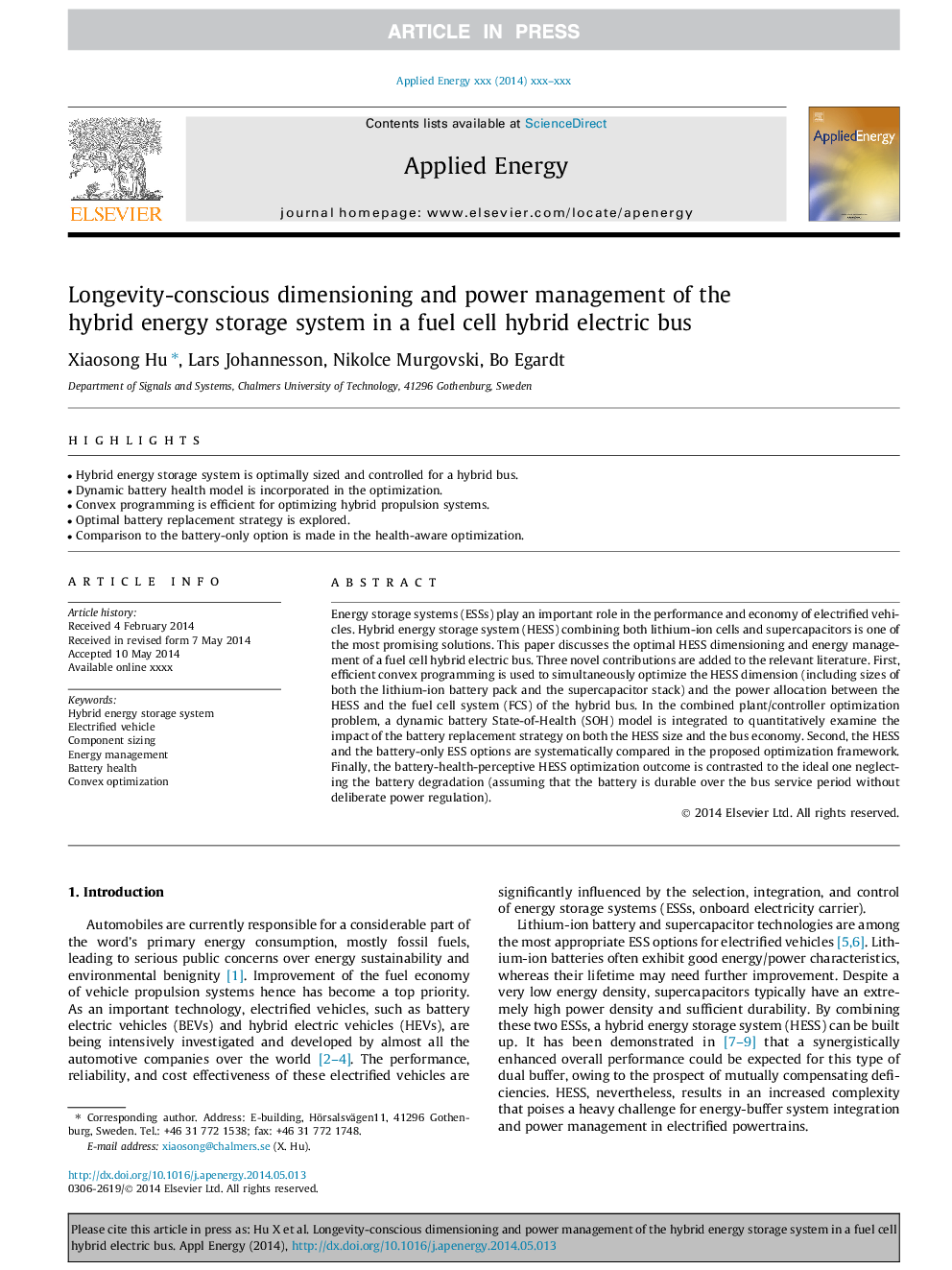| Article ID | Journal | Published Year | Pages | File Type |
|---|---|---|---|---|
| 6688968 | Applied Energy | 2015 | 12 Pages |
Abstract
Energy storage systems (ESSs) play an important role in the performance and economy of electrified vehicles. Hybrid energy storage system (HESS) combining both lithium-ion cells and supercapacitors is one of the most promising solutions. This paper discusses the optimal HESS dimensioning and energy management of a fuel cell hybrid electric bus. Three novel contributions are added to the relevant literature. First, efficient convex programming is used to simultaneously optimize the HESS dimension (including sizes of both the lithium-ion battery pack and the supercapacitor stack) and the power allocation between the HESS and the fuel cell system (FCS) of the hybrid bus. In the combined plant/controller optimization problem, a dynamic battery State-of-Health (SOH) model is integrated to quantitatively examine the impact of the battery replacement strategy on both the HESS size and the bus economy. Second, the HESS and the battery-only ESS options are systematically compared in the proposed optimization framework. Finally, the battery-health-perceptive HESS optimization outcome is contrasted to the ideal one neglecting the battery degradation (assuming that the battery is durable over the bus service period without deliberate power regulation).
Keywords
Related Topics
Physical Sciences and Engineering
Energy
Energy Engineering and Power Technology
Authors
Xiaosong Hu, Lars Johannesson, Nikolce Murgovski, Bo Egardt,
